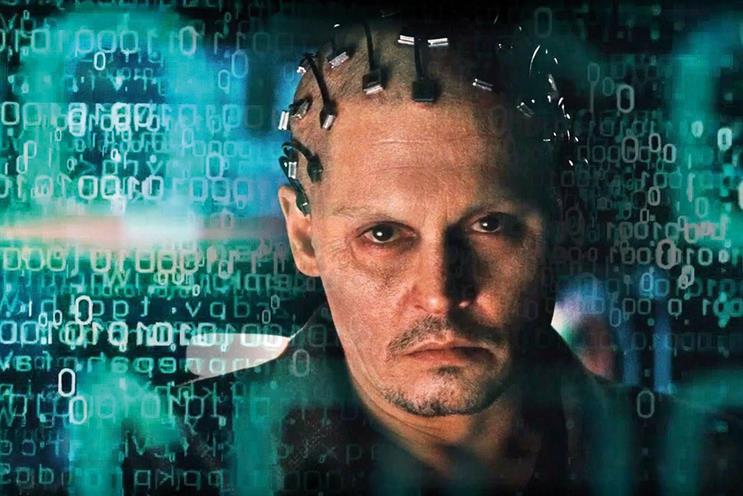
Humans should be worried about the impact of artificial intelligence. Even Stephen Hawking and Sir Tim Berners-Lee say so. But it is still the human mind, not computers, that will provide the real creative breakthroughs in the future.
AI has been catapulted into the public consciousness, with major films such as Her, Ex Machina and Transcendence all exploring the implications of this field of technology.
Big tech companies including Google, Facebook and Microsoft have invested in it heavily, and IBM’s Watson has taken up its fair share of column inches.
However, the launch this month of a bus-stop ad that changes what it shows to people depending on their behaviour marks one of the first times traditional advertising has dipped its toes into the world of AI.
Up until now, we have largely been watching from afar, fully aware of the huge impact it will have on the wider world but unsure about how it will affect our business.
There’s an old adage that brands know only half of their advertising works but not which half. This has been one of our industry’s biggest challenges, where we are constantly analysing what we made and trying to learn from it for next time. We may know a poster works or doesn’t work, but it’s difficult to understand whether it was because of the campaign idea, the copy, the art direction, clever use of brand assets or a million other factors.
In digital, this problem has been tackled by, among other things, A/B testing. This allows us to put two iterations out into the world and, at the end of a campaign, we can see which one worked best. This is a big improvement on where we were in the past, but it looks backwards and still requires a level of human interpretation.
AI has a huge opportunity to leapfrog this approach and take advertising into a whole new phase. By incorporating AI into our ads, we will be able to iterate and evolve in real time without the need for human interpretation, allowing brand owners to be more fleet of foot and giving them the ability to continually optimise while their ads are live.
This has huge implications for print, TV and digital ads. It will be the biggest step change in the way we work since the birth of the internet. However, despite what some may fear, I strongly believe that it will not mark the death of creativity in our industry.
There are lots of examples of computer-generated art and music that some would deem "creative", but almost all of these fall under a subset of creativity called "combinatorial creativity". This is built on the premise that creativity is just an unpredictable combination of ideas that can be achieved by mashing lots of things together until you end up with something.
The problem with this approach is that you’re always looking backwards. You’re taking a range of things you have learned in the past and mashing them together to find new combinations.
This method is great for iteration and improvement, but you’re always going to be limited to the inputs that you provide. You’ll generate new ideas, but they’ll always be based on past assumptions and learned behaviours. Combinatorial creativity isn’t true creativity as our industry defines it.
Creativity in advertising is about more than just tweaking copy or resizing a logo. Creativity is about making leaps and reframing a problem in an entirely new way.
To achieve true breakthrough creativity, you need to look beyond what we already know and see the world in a new way. It requires new inputs and forward-facing assumptions that AI is unable to make.
Computers can do combinatorial creativity based on looking backwards and improving but, as it stands, they are unable to truly create something new – and that represents a real limitation on breakthrough creativity.
AI will transform our world in a dramatic fashion, lighting a fire under the advertising industry. It will change our ways of working, automate aspects of what we do and offer clients more measurability. However, despite the huge potential, AI will never replace the creative spark that leads to breakthrough creativity.
So rest assured, creatives, your jobs are safe (for now).
Felix Morgan is the innovation lead at Brave

